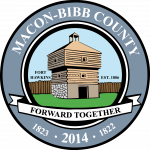On Tuesday, December 1, Fitch Ratings announced that it has affirmed the following ratings for Macon-Bibb County at ‘AA-‘: Issuer Default Ratings (IDR), General Obligation (GO) sales tax bonds, and Macon-Bibb County Urban Development Authority (UDA) revenue bonds. They also gave Macon-Bibb a ‘Stable’ Rating Outlook.
“The affirmation of the county’s ‘AA-‘ IDR and Stable Outlook reflects Fitch’s expectation that the county will continue to maintain a superior level of budgetary flexibility throughout the current and future downturns,” the company wrote in its release. “Long-term liabilities are expected to remain low, with no additional debt planned, very rapid amortization of outstanding debt, and manageable capital needs and pension liabilities.”
Fitch cited the fact that revenues in FY2020 (July 1, 2019 – June 30, 2020) performed better than budgeted thanks to increases in title ad valorem tax, local option sales tax, and insurance premium tax revenues. In that same time, expenditures were lower than budgeted due to maintaining vacant positions, reducing work hours, and the closure of some public facilities. These two combined allowed Macon-Bibb to again significantly increase its general fund balance.
To for more information and to read the full report from Fitch Ratings, click here.
Credit ratings for governments are just as important as a person’s individual credit scores because they are objective and independent opinions on the relative credit risk associated with the ability and willingness of a government or person to meet its financial obligations in full and on time. People should pay close attention to its government’s credit rating because it has a direct impact on the decisions government officials have to make. Based on these ratings, governments can have higher or lower payments on bond issuances and other purchases, and the revenue to cover those payments comes from property taxes, sales taxes, and utility fees. The lower the rating, the higher the payment, which means fewer funds for daily operations and potentially even the need for more revenue.
These ratings are also used by employers and major industries when deciding whether to establish or grow their businesses in an area because the report covers a wide-range of financial characteristics of governments such as its liquidity and ability to manage through a crisis, such as the current COVID-19 pandemic. The report also looks at ESG (environmental, social and governance) factors that can have positive and negative credit impacts on a government.

